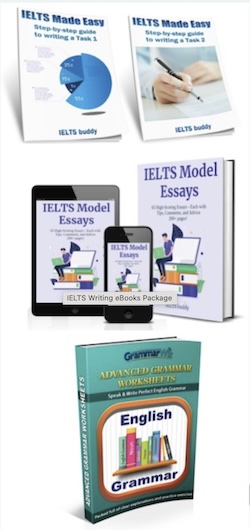- Home
- IELTS Writing Task 2
- Identify the Task
How to Identify the Task in an IELTS Essay
Once you have identified the topic (previous lesson) for your essay, you need to identify the task. The ‘task’ is the part of the question that tells you what you have to do to answer it.
This is one of the most important things you will have to do when you analyze the essay question. Why?
Because 25% of your grade for the essay is based on ‘Task Response’ - how you have responded to the task.
In order to grade your task response, the examiner will be looking to see if you have answered the question. If you have only partially answered the question, this will decrease your grade for this criteria.
Let’s look at the same essay question we looked at in lesson 1 when you identified the topic:
The crime rate among teenagers has increased dramatically in many countries.
Discuss some possible reasons for this increase and suggest solutions.
In the previous lesson, we identified the topic for this question as‘teenage crime’. The task - or ‘what you have to do’ - is usually at the end of the prompt.
As you can see, you are being told to ‘Discuss some possible reasons for this increase and suggest solutions’. It’s very common in task 2 IELTS essay questions to get asked to do two things, and this question is a good example of this:
- Why teenage crime has increased
- Ways to solve this problem
You MUST discuss both those things to ensure you have fully answered the question and you must write roughly equal amounts about each part. Doing any of the following things will reduce your score for task response, and hence may reduce your overall score:
- Only writing about reasons or only solutions
- Writing most of your essay about reasons and only a small part on solutions (or visa versa)
- Writing about the reasons and solutions for crime in general, and not referring to teenage crime (the topic)
- Writing about neither reasons nor solutions
This is why it is so important to spend some time at the beginning making sure you identify the task so that you know what you have to write about.
A Common Mistake
It is a common mistake for students to rush at the beginning to start writing as they are worried about not finishing, and then write about the wrong thing.
For example, when you have finished identifying the task, you will brainstorm your ideas. You may come up with reasons for an increase in crime such as ‘lack of parental supervision’ and ‘boredom’.
However, I have seen students come up with problems of teenage crime, such as ‘more young people being put in prison' and ‘stress for their parents'.
This particular task asks you to write about ‘reasons’, not ‘problems’(though being asked to write about 'problems and solutions' is common). So if you do this you will not be answering the question. This comes from rushing and not taking enough time to identify the task properly.
Other Question Types
The previous question was fairly easy, so to identify the task was hopefully not too difficult. Some questions, though, will take more thought in order to identify what you need to write about.
Here is another example:
Advances in technology and automation have reduced the need for manual labour. Therefore, working hours should be reduced.
To what extent do you agree?
Again, look to the end of the prompt to identify the task. You have to say if you agree or disagree with working hours being reduced, or, in other words, automation (machines) taking over from some human’s duties.
You must also say how much you agree or disagree ("to what extent"). Let’s assume you want to look at both sides of the issue. You therefore need to discuss the reasons why you agree, and the reasons why you disagree. Or put another way:
- The advantages of reducing working hours
- The disadvantages of reducing working hours
And of course in the introduction or conclusion you need to make it clear what your opinion is.
If you do all of these things then you will have answered all parts of the prompt. If you find more reasons to agree than disagree, then you can write more about this side of the argument, or visa versa.
Identify the Task - Practice
Now you can have a practice identifying the task for some IELTS essay questions.
Pick the one that you think best describes what you would write about in order to fully answer all parts of the question.
Understanding the question is so important in the essay. Make sure you check out our many IELTS sample essays to see all the different types of essays questions and how they can best be answered.
Comments
Any comments or questions about this page or about IELTS? Post them here. Your email will not be published or shared.














